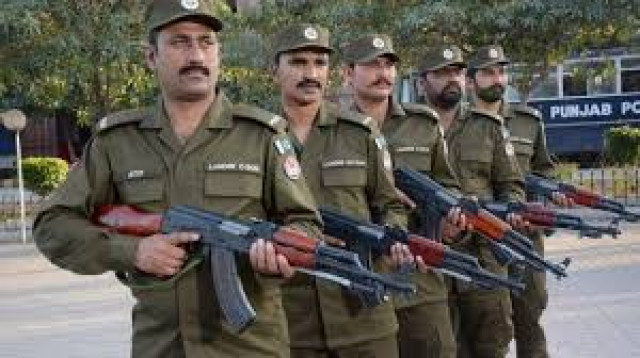Punjab Police struggle with criminal investigations
Dept’s silence over disappearance of SSP raises questions of competence

PHOTO: FILE
The SSP’s disappearance and his close friend Shahbaz Tatla’s alleged abduction not only show the capacity of the force to deal with high-profile cases but also their information policy.
Reportedly, around 10 teams of police and other investigation agencies were working on the case but none of the commanders has come forward to make a statement, in detail, on the investigation so far.
Such gaps in the investigation capacity of Punjab Police have also been highlighted in the past in high-profile cases including the Zainab murder case in Kasur and a paedophile serial killing case in Chunian.
Punjab Police prepare list of needed modern equipment
Another example is of the minor girl, Sumbal, who had reportedly been abandoned in Ganga Ram Hospital after sexual assault in 2013. Police could not solve the case over the years.
In the Zainab murder case, grave blunders such as the killing of an innocent labourer, reportedly in an encounter, to pacify the family of the victim girl and neighbours was also reported. And then, the Kasur DPO was later on booked for the encounter.
In the Zainab and Chunian cases, police had heavily relied on the Punjab Forensic Science Agency (PFSA) and almost a DNA census was conducted to nab the suspects.
Later on, PFSA high-ups also pleaded before the higher authorities for a separate allocation of funds as the practice was expensive.
Limitations of investigation
The gaps in investigations capacity of Punjab Police, keeping in view previous blunders, warrant the realisation that the traditional approach to investigation, which was highly focused on confession through coercion, has its own limitations.
Under this approach, the police would put all focus on getting hold of the suspect. If he or she would manage to flee, his relatives were coerced to gain access to the suspect. The approach usually would lead towards irregularities and excesses on part of the police, including illegal detention and torture of innocents.
The department also needs to realise that confession practice does not necessarily bring results when solving cases. There have been instances when relying on confession led towards blunders.
Mudassar, the labourer who was killed, reportedly in an encounter in Kasur, had confessed not only to the family of the victims but also to the police. A senior police officer once shared a story with The Express Tribune regarding limitation of confession in investigations. A DSP rank officer of a specialised investigations wing had claimed before high-ups that he had got hold of suspects involved in the murder of the parents of a senior journalist a few years ago. When interrogated by the high-ups to prove the soundness of his investigations, his response contained nothing more than a confession of the suspects.
Witness points finger at cop for killing friend
In the developed world, high-profile cases like those witnessed here in recent years were taken as case studies. A lot of effort and investment was made to conduct research and develop the capacity of the department in view of the experiences. However, in the case of Punjab Police, no such concrete steps for the purpose have been taken so far. They also need to consider their laid-back attitude.
Punjab Police have been assessing their media management with the aim of improving their image and disseminating information regarding the department’s version in wake of major crimes.
The move was accelerated after the Chotu Gang operation in south Punjab. The public relations branch of Punjab Police was upgraded. Media management training workshops were arranged for senior police officers including DPOs and RPOs.
Similarly, various IGPs have also come up with media management policies to be followed by field officers. An example of this is former IGP Arif Nawaz Khan’s directives in wake of ATM theft suspect Salahuddin’s custodial death. However, the instructions have time and again been neglected when it comes to media management and information dissemination in high-profile cases.
Published in The Express Tribune, February 19th, 2020.

















COMMENTS
Comments are moderated and generally will be posted if they are on-topic and not abusive.
For more information, please see our Comments FAQ